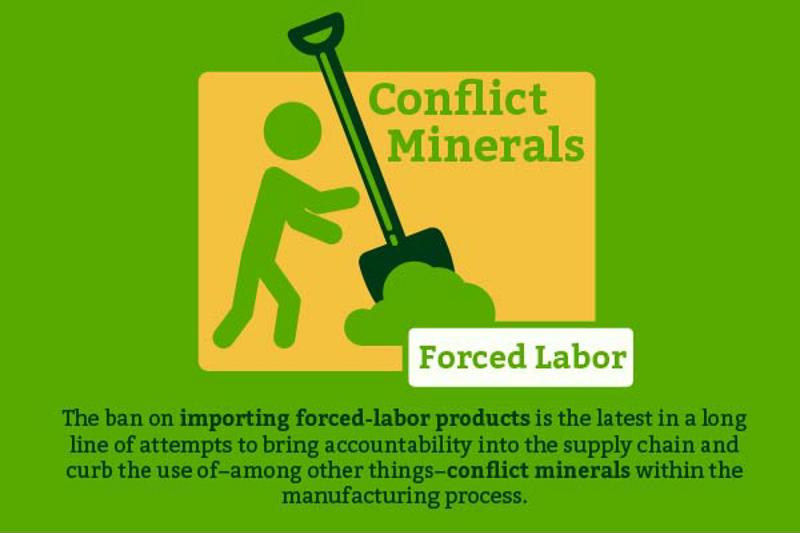Much of the news impacting supply chain operations of late has to do with conflict minerals and other problematic raw goods. Most recently, in February 2016, the U.S. Congress passed a bill that included a ban on imports that were created via forced labor. The bill is to be looked at – and, presumably, signed – by President Obama sometime in late February. At that point, it will be on the shoulders of manufacturers to find ways to eliminate these kinds of products from their supply chains.
This ban includes products like gold mined by children in Africa, clothes woven by abused women in Bangladesh and fish caught by slaves in Southeast Asia, according to Manufacturing.net contributor Martha Mendoza. The ban is part of an effort to decrease the rate of labor abuse across the world — and the exposure these practices are getting seems to be working. For instance, after an exposé conducted by The Associated Press in 2015, more than 2,000 trapped fishermen have been freed from the fishing business in Thailand.
“If signed by President Obama, imports of a Labor Department list of more than 350 goods produced by child or forced labor – cotton from Kazakhstan, wheat from Pakistan, lobsters from Honduras – may now face federal law enforcement,” Mendoza wrote.
This isn’t the first time forced-labor products and conflict minerals have been in the news. For instance, a recent report published by Amnesty International linked cobalt to child labor in the Democratic Republic of the Congo. This is going to have an impact on the high-tech industry because cobalt is used in lithium-ion batteries like the kind found in smartphones and electric cars, according to GreenBiz.
“There have been nothing but troubled waters since the Dodd-Frank Consumer Protection Act passed.”
Why are conflict minerals a big deal?
The ban on importing forced-labor products is the latest in a long line of attempts to bring accountability into the supply chain and curb the use of – among other things – conflict minerals within the manufacturing process. What is an undisputedly positive action for humanity could prove difficult to manage for affected companies, however. It will require massive amounts of oversight to first identify where conflict minerals are coming from and then, if necessary, modify the supply chain accordingly.
In 2010, President Obama signed the Dodd-Frank Consumer Protection Act into law, denoting that manufacturers needed to determine whether conflict minerals exist within their supply chains and then publicly report those findings. However, there have been nothing but troubled waters since this law was passed. The reports filed in 2014 with the Securities and Exchange Commission showed a worrying trend: A startlingly low percentage of businesses even knew which country their minerals came from, according to New York Times contributor Denis Mukwege.
 The ban on forced-labor products will have far-reaching impacts.
The ban on forced-labor products will have far-reaching impacts.PLM tools can help
As conflict minerals – and, if the ban on forced-labor imports is signed into law by President Obama, over 350 other items created by forced labor around the world – become more of an issue for businesses and their supply chain managers, entire processes may need to undergo change. Managers don’t have to do it alone.
Oracle’s Agile Product Lifecycle Management suite, which includes the Agile Product Governance & Compliance solution, can be a great way for manufacturers to get a better handle on these kinds of issues and make sure they’re remaining compliant with government mandates surrounding conflict minerals. In addition, we at Inspirage offer our own Conflict Minerals Solution that can assist supply chain managers with oversight and control over the entire manufacturing process.
Contact Inspirage today for more information about how our solutions can have an impact on your supply chain.